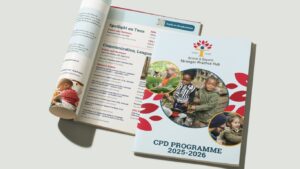
Nicki Cherry is an alumni Early Years Specialist at the Education Endowment Foundation and worked on producing the Communication and Language and Early Mathematics themes in the Early Years Evidence Store. She works currently for two local authorities as an Early Years Delivery Manager overseeing three maintained nurseries and as an Early Years Advisory Teacher. Nicki is also, an independent Early Years Consultant.
Mathematising the Day by Nicki Cherry
Research evidence tells us that having a good early mathematical understanding is connected to children having better educational and life outcomes (EEF, 2020).
Should we leave children’s encounters with mathematics to chance?
Maths is everywhere, but for some children these mathematical concepts and ideas are not always obvious. Sometimes young children need an adult to draw attention to the mathematical moments in their play and everyday routines.
We can look at some of the recommendations from the Guidance Report – Improving Mathematics in the Early Years and Key Stage 1 to support us in thinking about this further.
Recommendation two: Dedicate time for children to learn mathematics and integrate mathematics throughout the day.
The guidance recommends us to consider the following:
- Dedicate time to focus on mathematics each day.
- Explore mathematics through different contexts, including storybooks, puzzles, songs, rhymes, puppet play, and games.
- Make the most of moments throughout the day to highlight and use mathematics, for example, in daily routines, play activities, and other curriculum areas.
- Seize chances to reinforce mathematical vocabulary.
- Create opportunities for extended discussion of mathematical ideas with children.
What does this look like in everyday practice?
The EEF’s Early Years Evidence Store has an early mathematics theme that helpfully highlights evidence-informed approaches and practices that research evidence has shown are effective in supporting children’s early mathematical development.
Within the Evidence Store we can explore examples of these approaches in action and watch videos that shine a spotlight on the specific practices that early educators are using.
For example, you can watch Ella teach her group of three-and four-year-olds association between number and quantity during ‘welcome time’ as they count how many children are in the group (Welcome Time Maths video). As well as Steve teaching problem-solving skills for maths within the context of a familiar story (Caterpillar Food Problems video).
How can we mathematise our day? – A Case Study
In North Somerset our Educators at Ashcombe, Little Waves and Early Birds Nurseries have been using the EEF Evidence Store to think about how to effectively integrate playful and meaningful mathematics into nursery daily routines and provision.
We have focused on the key messages from the evidence and the videos in particular have been valuable in supporting our professional conversations around how we can mathematise our day.


Sophie Harvey (Baby Room Leader at Early Birds Nursery in North Somerset)
- We count the children at welcome time to find out “how many children we have today?’
- Around our room we have visuals of different number representations (no more than to number three) at child height in each area of provision, to support number and quantity association.
- We provide opportunities for children to subitise e.g., we have small bags with dice patterns up to number three and in each bag, there are that amount of objects.
- At snack time adults use the Makaton sign and the word ‘more’ and highlight when children’s drinks are empty e.g. “I can see your milk is empty would you like more?”.
- During snack after the children have chopped up their fruit, both children and adults count how many pieces of fruit they have altogether and talk about size e.g., you have chopped your banana in half so now you have a big piece and a small piece.”
- We have intentionally put different size boxes, bags and resources into our provision to provide opportunities for adults to model mathematical language around the concept of size.


Emma Rogers (Pedagogy Lead at Ashcombe Children’s Centre Nursery)
- We have upgraded our snack time to include mathematical opportunities such as…
- Counting how many children are sat at the table.
- Problem-solving with the children how many plates and cups they need.
- The adult then helps children to visualise the number through writing the corresponding numeral on a whiteboard and encouraging the children to represent the amount on their fingers.
- The adult models the concept of fractions in meaningful contexts e.g., “you have cut your toast in half and yours in cut in quarters”.
- There are always opportunities for children to subitise.
- The adult model mathematical language such as “full, empty, half full, half empty” when children are pouring and drinking their milk.
As a team we have thought about all the opportunities within our day and in our provision where we can highlight maths appropriately for babies and young children.


Dedicating time to focus on mathematics each day
Within daily routines and the different contexts in which children learn, we can weave in mathematical moments, maximising opportunities for children to encounter mathematical concepts, language and ideas.
In terms of mathematical language, we think about the vocabulary we want our children to learn and use within the day and play provision.
Resources can be thoughtfully organised and presented so that children can use their understanding of shape and space at tidy-up time to sort resources independently.
By mathematising our play provision, daily routines and interactions, we can be sure that we are not leaving children’s mathematical learning to chance.
References
‘Improving mathematics in the early years and key stage 1’, Education Endowment Foundation, January 2020.
‘Early years and key stage 1 mathematics teaching: evidence review’, Education Endowment Foundation, August 2020.
The Early Years Evidence Store, The Education Endowment Foundation, 2023
Join Our Free Webinars and Events for Expert Guidance and Practical Support
To find out more about this evidence-informed approach and see it in real-life practice, you can attend our upcoming early maths events through the Bristol & Beyond Early Years Stronger Practice Hub.
Join Mathematising the Day – Open Study Morning at Hartcliffe Nursery School on January 21st 2026.



